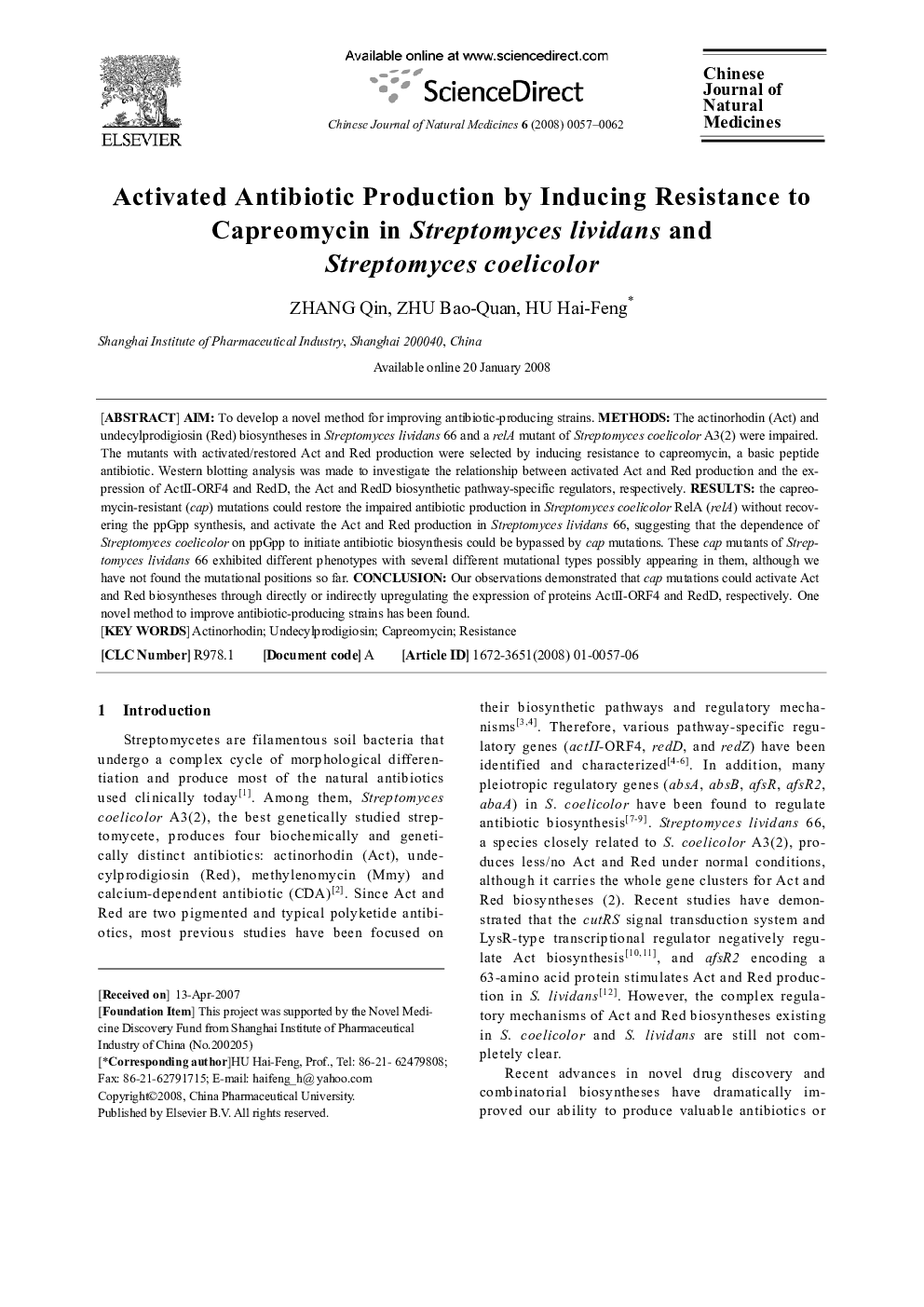| کد مقاله | کد نشریه | سال انتشار | مقاله انگلیسی | نسخه تمام متن |
|---|---|---|---|---|
| 2526935 | 1558073 | 2008 | 6 صفحه PDF | دانلود رایگان |

ABSTRACTAIMTo develop a novel method for improving antibiotic-producing strains.METHODSThe actinorhodin (Act) and undecylprodigiosin (Red) biosyntheses in Streptomyces lividans 66 and a relA mutant of Streptomyces coelicolor A3(2) were impaired. The mutants with activated/restored Act and Red production were selected by inducing resistance to capreomycin, a basic peptide antibiotic. Western blotting analysis was made to investigate the relationship between activated Act and Red production and the expression of ActII-ORF4 and RedD, the Act and RedD biosynthetic pathway-specific regulators, respectively.RESULTSthe capreomycin-resistant (cap) mutations could restore the impaired antibiotic production in Streptomyces coelicolor RelA (relA) without recovering the ppGpp synthesis, and activate the Act and Red production in Streptomyces lividans 66, suggesting that the dependence of Streptomyces coelicolor on ppGpp to initiate antibiotic biosynthesis could be bypassed by cap mutations. These cap mutants of Streptomyces lividans 66 exhibited different phenotypes with several different mutational types possibly appearing in them, although we have not found the mutational positions so far.CONCLUSIONOur observations demonstrated that cap mutations could activate Act and Red biosyntheses through directly or indirectly upregulating the expression of proteins ActII-ORF4 and RedD, respectively. One novel method to improve antibiotic-producing strains has been found.
Journal: Chinese Journal of Natural Medicines - Volume 6, Issue 1, January 2008, Pages 57-62